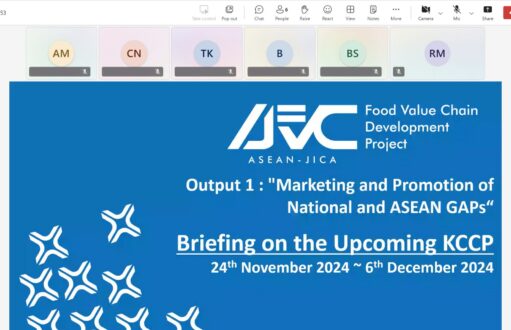In mid-January, the AJFVC project team successfully organized the first round of pesticide residue analysis training in the Philippines for Cambodian participants. This initiative aims to strengthen the country’s pesticide residue analysis capabilities, specifically tailored to meet the current needs and capacities of local laboratories.
This training involved participants from Cambodia’s National Agricultural Laboratory (NAL) and was facilitated by the Plant Product Safety Services Division (PPSSD) under the Bureau of Plant Industry (BPI), Department of Agriculture of the Philippines, along with Jefcor Laboratories Inc., a private laboratory based in the Philippines.
The program spanned two weeks and was divided into two parts. The first week consisted of lectures at Jefcor Laboratories in Cavite, preparing participants for the practical sessions the following week. Topics covered including the basics of pesticides, good laboratory practices, and CODEX guidelines on sampling procedures.
The second week took place at PPSSD in Quezon City and was dedicated for hands-on training. During this phase, participants applied their knowledge by performing multi-pesticide residue analyses using the QuEChERS extraction method and determining pesticide residue using chromatography equipment such as gas chromatography tandem mass spectrometry (GC-MS/MS) and liquid chromatography tandem mass spectrometry (LC-MS/MS). Rice, Cambodia’s primary agricultural commodity, was selected as the sample for analysis.
By improving pesticide residue analysis capabilities, this initiative contributes to Cambodia’s readiness for agricultural exports while ensuring compliance with international food safety standards. Moving forward, this program serves as a foundation for further capacity-building efforts and cross-border partnerships.
